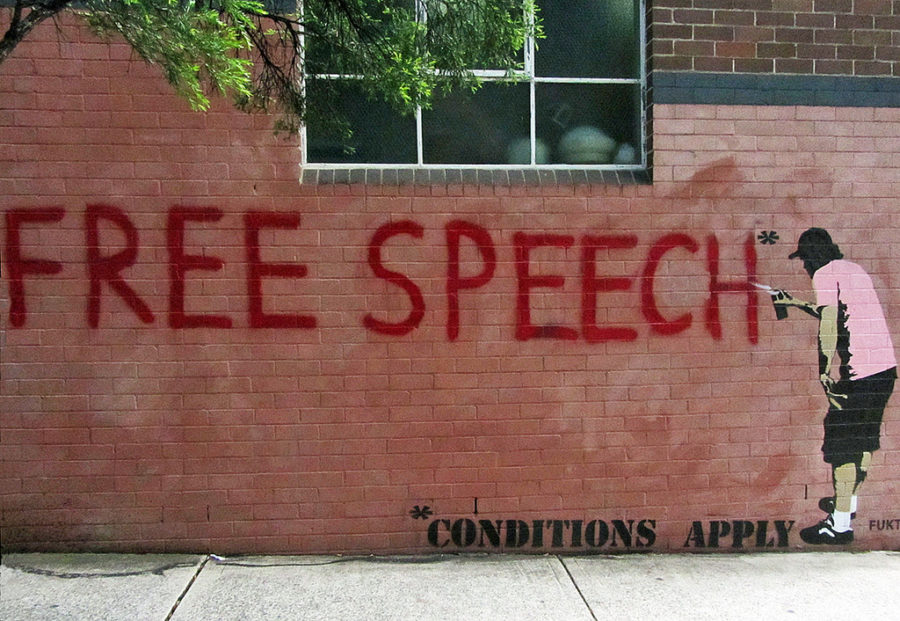Political Activity Policies at Pace as Free Speech Week Approaches
Freedom of Speech week celebrates our right to the media and press.
Free Speech Week (FSW) is an annual celebration focusing on importance of the right to freedom of speech to light. This week is meant to honor this right and to recognize this right within our democracy. It is observed the third full week of each October, which will be Oct. 22nd-28th this year.
With FSW right around the corner, and Election Day coming up in a few weeks, there are some rules regarding political activity on campus that students need to keep in mind. While these rules are compiled by the American Council on Education, they are not new or unique to Pace. Rather, these are basic rules that all universities must follow when conducting political activities on campus.
Earlier this semester, the Office of the Provost sent out an email with guidelines attached. The attached memo outlined the “do’s” and “don’ts” that universities, personnel, and students should keep in mind. While many activities are permissible on campuses, these guidelines must be complied with for any political activities that occur on campus.
In this memo, the guidelines for five general activities are detailed: voter education (including voter guides) and voter registration, candidate appearances, issue advocacy, use of institutional resources, and participation in the election process by faculty, administrators, and other employees of the institution.
Each section has its own specific “do’s” and “don’ts” that are all outlined. For example, a university can hold impartial voter registration events as well as provide education on the electoral process or encourage voting, but a university cannot skew information in favor of a single party. Furthermore, institutional resources can be used for purposes such as voter education and to allow established student groups to use institutional facilities for partisan political purposes, but institutional resources cannot be used to support one political party over another.
“Anything that Pace University does as a whole, has to be bipartisan and that includes anybody that wears a Pace University hat as a role,” Center for Community Action and Research Program Coordinator Tyler Kalahar said. “Every time we go out to register voters, we’re registering democrats, we’re registering republicans, we’re registering independents, we don’t care about political leanings.”
Generally, these guidelines ensure that universities and university personnel remain impartial during election season. Pace has already had activities on campus that show these guidelines in use. Every Wednesday, for example, students have been able to register to vote in Alumni Hall and have been impartially taught of the electoral process while doing so.
As both Election Day and FSW approach, these guidelines are important for both Pace staff and students to keep in mind. These guidelines do ensure that impartial information is provided and that students can decide their parties for themselves, which is crucial to the electoral process.
For those looking to hold campaign related activities, the Office of Government & Community Relations encourages reaching out to ensure that all activities fall within the guidelines provided. This office can also help to plan and execute any political activities on campus.
Your donation supports independent, student-run journalism at Pace University. Support the Pace Chronicle to help cover publishing costs.

